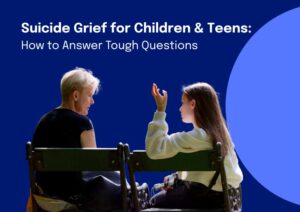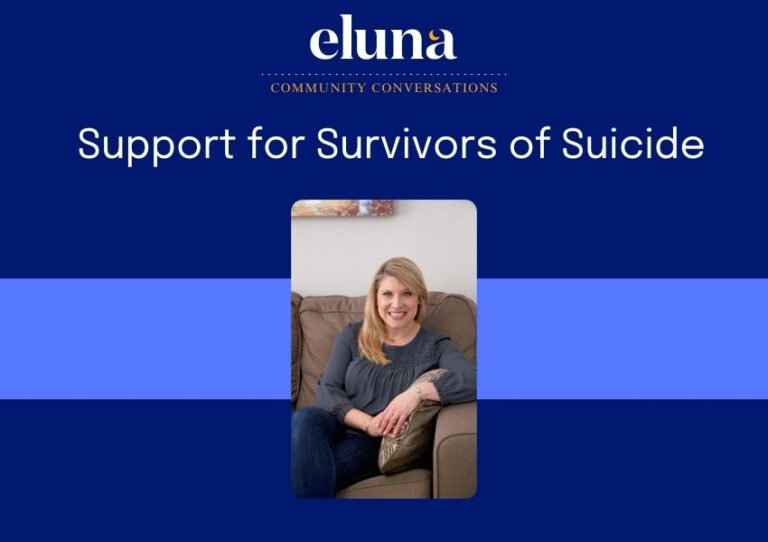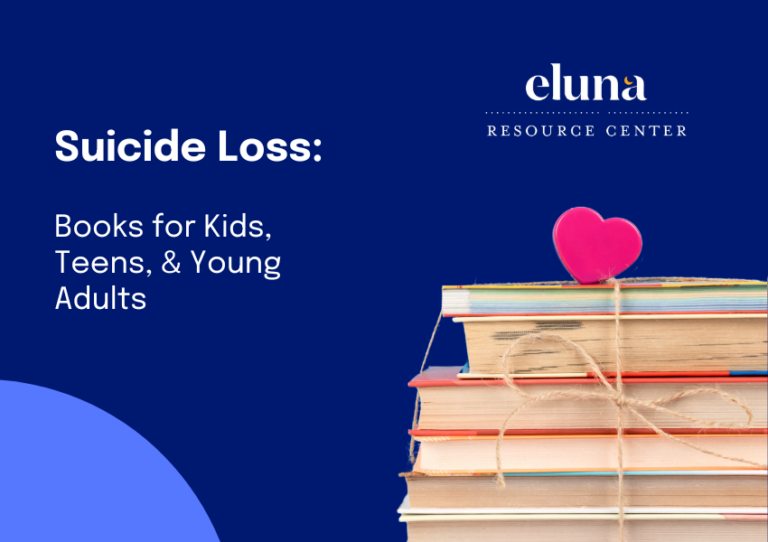Suicide Grief for Children & Teens: How to Answer Tough Questions
 When grieving the death of a person in your life to suicide, it can be difficult to answer questions related to your person or how they died. Special events and holidays are especially hard when the questions tend to roll in about the whereabouts and wellbeing of family and friends. It can be helpful to build a ‘tough question toolkit’ with a range of options and answers. In collaboration with Eluna’s bereavement team and suicide grief support committee, we have developed this resource with possible questions & answers to consider as you build your toolkit of responses.
When grieving the death of a person in your life to suicide, it can be difficult to answer questions related to your person or how they died. Special events and holidays are especially hard when the questions tend to roll in about the whereabouts and wellbeing of family and friends. It can be helpful to build a ‘tough question toolkit’ with a range of options and answers. In collaboration with Eluna’s bereavement team and suicide grief support committee, we have developed this resource with possible questions & answers to consider as you build your toolkit of responses.
Don’t answer. Not all questions have to be answered. You can simply choose not to respond or leave the conversation. “Excuse me, I have to run to the bathroom” or “Sorry I have to take this call”.
Answer a different question. Change direction and talk about someone else in your life instead.
- Question: How will you be celebrating Mother’s Day?
- Answer: I will be making a card for my aunt. How about you?
- Question: How are your brother and sister doing?
- Answer: My sister is doing great. She is studying a lot!
Talk about your person in the present tense. They are always going to be your parent/caregiver/sibling/children/partner/friend, even after they die by suicide. Talk about how they are as a person or how they lived their life – in the present tense.
- Question: What is your mother like?
- Answer: She is a hard worker and funny. She has a way of lighting up the room.
- Question: How do you get along with your brother?
- Answer: We’ve had our ups and downs. And he motivates me to live life to the fullest and say ‘yes’ to new adventures.
Open-ended answer. Try giving a broad-stroke answer to give a hint that you don’t want to provide any details. Many people will understand that the subject of family can often be complicated.
- Question: How are your parents doing?
- Answer: It’s a difficult situation.
- Question: How are you getting along with your sister?
- Answer: It’s complicated.
Answer with a simple acknowledgement of their death. You can always say “they died” or use a phrase that feels right for your life. If you are talking with younger children, avoid using words such as “gone”, “passed on”, “lost” as it may be confusing.
Address the underlying issue. You can talk about any underlying challenges without saying the word suicide: “My mom struggled with a mental health disorder and died.”
Be honest. You can also say “They died by suicide”. In some situations, you may choose to also educate people about suicide. “There were over a million suicide attempts last year.” or “Over 45,000 people died by suicide in 2020”. Click here for more suicide statistics.
Whatever works for you! You decide how you want to answer any question – It is your choice. Click here for some storytelling tips.


